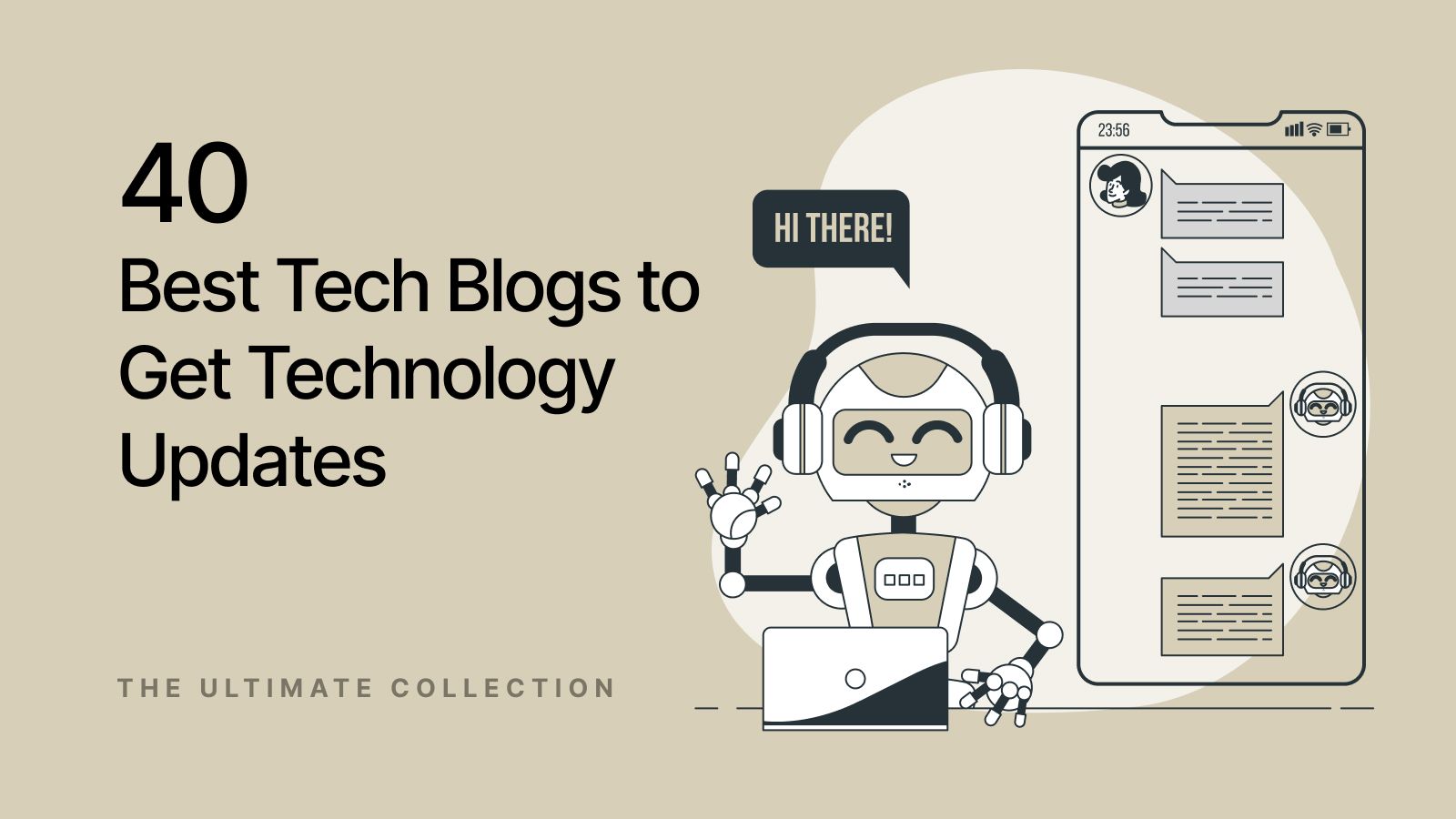What Makes the Best tech blog Stand Out Among Tech Fanatics and Experts
How Blockchain Innovation Is Revolutionizing Data Safety And Security
Blockchain innovation is fundamentally changing the landscape of information protection by introducing a decentralized structure that assures enhanced transparency and resilience. Unlike conventional systems, which rely upon centralized data databases, blockchain distributes information across a network, lessening vulnerabilities and single factors of failure. Making use of sophisticated cryptographic methods ensures that data stays tamper-proof, fostering count on among stakeholders and customers. As markets quickly adjust to this modern technology, inquiries emerge concerning its wider influence and possible challenges. What implications does this shift hold for future information security approaches and governing structures? The solutions may amaze you (Best tech blog).
The Essentials of Blockchain
Blockchain innovation, a cutting edge principle in digital information administration, fundamentally changes exactly how details is saved and secured. At its core, a blockchain is a distributed journal that tape-records purchases throughout a network of computer systems, making certain openness and immutability.
Key to recognizing blockchain is the hashing process, which encrypts deal information right into a special alphanumeric code. This cryptographic feature makes sure that any type of modification in the purchase data results in an entirely different hash, thus guarding against tampering. The consensus mechanism, one more essential part, validates and validates new purchases via a network of nodes, thereby removing the requirement for a central authority.
In addition, blockchain's append-only framework ensures that data, once included, can not be removed or changed. This particular assurances a proven and long-term record of deals, promoting count on amongst individuals. Because of this, blockchain supplies a robust structure for data integrity, supplying sectors a trustworthy technique for monitoring and managing electronic info in a protected, transparent way.
Decentralization and Safety And Security
Decentralization, a core concept of blockchain innovation, considerably boosts data security by distributing control throughout a network instead of depending on a single, central entity. This circulation alleviates the risk of single factors of failing, which are widespread in conventional central systems. By distributing information throughout countless nodes, blockchain makes certain that even if one node is compromised, the entire network remains secure. This redundancy not only fortifies the stability of the information but also enhances its resilience to cyberattacks and system failings.

Each individual in the network has access to the entire blockchain, allowing them to verify and examine deals separately. On the whole, decentralization is important in boosting data security in blockchain networks.

Cryptographic Methods
At the heart of blockchain modern technology, cryptographic strategies play a crucial duty in safeguarding data, ensuring both confidentiality and integrity. These techniques are fundamental to the blockchain's ability to firmly record purchases in a decentralized manner. Cryptography in blockchain uses a combination of symmetrical and crooked algorithms to secure data, making it accessible just to accredited celebrations - Best tech blog. Public and private key pairs are central to this procedure, enabling safe verification and identity confirmation without disclosing delicate information.
Hash functions are another critical component, transforming input data right into a fixed-size string of characters, effectively producing an one-of-a-kind electronic finger print for every block. This guarantees that any type of attempt to alter the information will certainly lead to a totally different hash, hence keeping the immutability of the blockchain. Additionally, electronic trademarks verify the credibility and integrity of purchases, providing a layer of non-repudiation.
The decentralized nature of blockchain, incorporated with durable cryptographic techniques, eliminates the demand for middlemans, lowering possible vulnerabilities. As blockchain technology develops, improvements in cryptography such as zero-knowledge proofs and homomorphic encryption remain to boost safety and security procedures, even more strengthening information protection in this revolutionary electronic ledger system.
Use Instances Throughout Industries

In the medical care sector, blockchain guarantees the safe storage and sharing of individual documents, advertising interoperability while safeguarding delicate data from unauthorized gain access to. This modern technology equips people with control over their clinical history and facilitates seamless sychronisation amongst healthcare carriers.
Supply chain monitoring benefits considerably from blockchain's immutable journal, which ensures traceability and authenticity of items from beginning to consumer. By enhancing openness, blockchain assists mitigate concerns such as counterfeiting and dishonest sourcing.
Furthermore, blockchain's decentralized nature is improving the energy market by making it possible for peer-to-peer energy trading, where customers can buy and offer excess sustainable energy straight. This fosters a more reliable and lasting energy ecological community.
In the world of intellectual building, blockchain gives a tamper-proof system for designers to register and shield their works, ensuring rightful acknowledgment and reasonable settlement. These diverse use instances underscore blockchain's function as a crucial pressure in redefining information company website security across industries.
Future of Information Security
As we seek to the future of information protection, blockchain innovation is positioned to play a pivotal duty in protecting electronic information. With its decentralized and unalterable features, blockchain uses a durable framework for safeguarding delicate data against unauthorized gain access to and cyber hazards. This modern technology makes certain that once data is recorded, it is virtually impossible to change without discovery, thus providing a significant benefit over traditional information storage methods.
The integration of blockchain with other advanced modern technologies, such as artificial YOURURL.com knowledge and the Web of Points (IoT), is anticipated to improve data security strategies additionally. By leveraging clever agreements, organizations can implement and automate protection procedures, decreasing human error and boosting performance. In addition, blockchain's capacity to offer deducible and transparent purchases will bolster trust fund and responsibility in data administration practices.
As governing landscapes develop, blockchain's compliance-friendly nature will certainly come to be significantly pertinent. It can help companies meet rigorous information protection regulations, such as the General Data Protection Guideline (GDPR) and the California Customer Personal Privacy Act (CCPA), by offering verifiable documents of data processing tasks. Eventually, blockchain's distinct features position it as a transformative tool in the ongoing mission to safeguard the digital globe versus ever-evolving cyber threats.
Conclusion
Blockchain modern technology represents a paradigm shift in data security by leveraging decentralization and cryptographic techniques to improve openness, trust, and data integrity. Its ability to eliminate solitary factors of failing and utilize consensus systems considerably reduces the threat of fraud and cyberattacks. This ingenious structure not only encourages users with better control over their information yet additionally lines up with regulative conformity. As cyber hazards develop, blockchain arises as an essential tool for robust information security throughout different sectors.
Blockchain innovation is fundamentally modifying the landscape of information safety by presenting a decentralized structure that guarantees improved openness and strength. Unlike conventional systems, which count on centralized data databases, blockchain disperses information throughout a network, decreasing susceptabilities and solitary points of failure.Decentralization, a core concept of blockchain technology, considerably enhances information protection by dispersing control throughout a network instead than depending on a particular, central entity.At the heart of blockchain technology, cryptographic strategies play a pivotal duty in protecting information, guaranteeing both discretion and integrity.Blockchain Discover More innovation stands for a standard change in information safety by leveraging decentralization and cryptographic methods to improve transparency, depend on, and information stability.